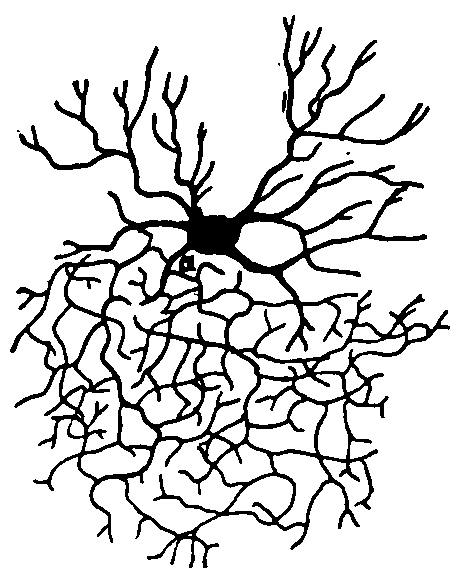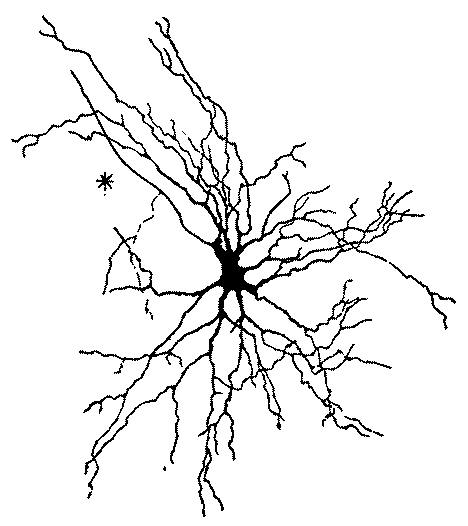 полная версия
полная версияPsychotherapy
An interesting phase of this lapse in memory helping us to a revelation of something of the physical process which underlies the faculty, is the fact that it implies a very intricate machine. Recalling has become such an obvious incident that we do not think of the complexity of action involved. Many things are brought together, and relations of all kinds serve to recall various facts and names and dates. Some of these relations are most bizarre. Particular names recall a definite series of facts. A color will bring up a scene or the memory of an individual. An odor will recall scenes long since apparently forgotten and will set trains of thought at work that are quite unexpected. Sometimes we wake in the morning with a name or a fact on our lips that we have been looking for for several days.
UNCONSCIOUS CEREBRATION
Some people actually learn to depend on unconscious cerebration. A man, for instance, who has to make an address on a particular subject or to write an article, will record that fact on a tablet and after gathering a few basic thoughts in connection with the subject proposed, will put it aside for the time being. He is confident that various illustrations and thoughts in connection with the subject will occur to him at intervals during the next few days, and that he will thus without direct labor accumulate an amount of material for use. In the early morning hours he may find that thoughts on it come to him unbidden. Sometimes he will find these thoughts precious germs, that will develop during the course of the following days, and will be of great help to him. If he is worried and preoccupied with other things very much, this may not happen, but under ordinary circumstances he can continue routine occupations which demand practically all of his time, yet continue to develop the subject selected for his paper or address. The more he has occupied his mind with the subject at the beginning, the more will this unconscious cerebration continue.
ABSTRACTION OF MIND
Features of the mechanism of mental operations are brought out in certain phenomena of abstraction of mind, which show how the attention can be so short-circuited that sensations from the periphery utterly fail to penetrate to the consciousness. Most men have had the experience of taking out their watches, looking at them, and then putting them back. Presently somebody asks what time it is. Unable to recollect what it was that they saw, they have to look again. There is no doubt that they meant to observe the time.
The same thing is true for practically all the senses. A pickpocket takes advantage of our being occupied with many other feelings in the midst of the jostling in a crowd on a car, or before a show window, or he has a confederate add to the sensations already streaming up to us, calling attention particularly to the other side of the body, and then inserts his hand into our pocket and extracts what he finds. Sometimes we have a faint memory of something having happened to that pocket, but our attention was occupied elsewhere.
In hearing we have the same experience. When thoroughly occupied with a book, a person may talk to us or ask us a question and we have no idea of what was said, sometimes utterly failing to hear the voice; sometimes we hear the sound of the voice, but do not comprehend the meaning of the words.
When we are unprepared for a question we nearly always have to have it repeated to us. Sitting in a railroad train, if the person behind us, whom we did not expect to talk to us, asks a question, it is very probable that on the first asking we shall not notice it at all, considering that it is addressed to someone else. On its repetition, it may appeal to us as addressed to ourselves, but even then we readily lose its significance because our attention has not been called to the wording of it soon enough to enable us to comprehend it thoroughly. These experiences, so familiar that we have probably all had them at some time or other, indicate how universal is the power of the mind to concentrate itself upon itself to the extent of neglecting sensations from the outer world, even though they may pass the periphery of the organism and manifestly affect the first neuron of the chain that leads up to our brain and consequently to consciousness. They do not reach the center with sufficient intensity to be understood, and a conscious act of attention must be made before we comprehend their meaning.
PREOCCUPATION OF MIND
This is true, not only for ordinary sensations, but even for such as would ordinarily be presumed to be so insistent in their call that they could not be neglected. The concentration of mind necessary for this is not common to all mankind; it is possessed only by a few individuals whose intellect represents the larger portion of their personality. Certain of the great investigating scientific geniuses have had the faculty of so concentrating their attention upon the questions with which their intellects were engaged, that even the call of appetite did not make itself felt. Newton was one of these. Over and over again, he was known to neglect to take his meals, even though they were brought to him, and, occasionally, he would entirely forget whether he had taken a meal or not. But Newton is not an extreme exception. Most of the great mathematicians have had experiences of this kind and, indeed, mathematics seems to be that special branch of intellectual work which most readily brings about a preoccupation of mind sufficient to completely shut out the outer world for the time being. Archimedes, the great ancient mathematician, lost his life because of preoccupation with mathematical problems that kept him from telling the Roman soldiers, who had strict orders to spare him, who he was.
Complete absorption of mind to the exclusion of all external sensations is not, however, confined to the mathematicians. Mommsen, the historian, was famous for his fits of mental abstraction. Once he patted a school-boy on the head and asked whose boy he was, to be told rather startlingly, "Yours." Lombroso, the criminal psychologist, was subject to abstraction in almost as great a degree. Men have become so preoccupied in study as not to appreciate the significance of warnings, indicating that a serious accident was about to happen, such as a fire or the fall of some object that they should have avoided, or some other danger to themselves. The tendency to such abstraction is responsible for many accidents on busy city streets. When so preoccupied, painters walk off scaffolds, and such preoccupation of mind is extremely dangerous, not only for the man himself, but for those who are working with him.
Everyone knows that a slight headache frequently disappears in pleasant company. There is sometimes the suspicion, though it is quite unjustified, that because a person has a headache which can be cured by engaging in a favorite occupation, the headache is more imaginary than real. The common experience with toothache shows the falsity of this opinion. There is no imagination in regard to toothache, yet it, too, except in very severe cases, will be so modified as to be quite negligible if the victim has some mental occupation that is very absorbing. Pains of other kinds that are just as real, may be modified in the same way. I have known a boy to suffer enough from the presence of an unsuspected kidney stone to give up play and come into the house, yet he could be made entirely to forget his discomfort by a game of checkers. On account of the ease with which the pain was thus dispelled, the suspicion was harbored that his ache was more imaginary than real. The ache continued and at the end of about a year there was an acute exacerbation which justified an operation, and the stone was removed.
In all these instances there is evidently a question of the unmaking, or at least imperfect making, of connections between the peripheral and central neurons, because of the existence of connections between different portions of the brain itself which take up the attention. This attention to mental things may become exaggerated, and must be guarded against, but it represents a valuable psychotherapeutic remedy. Whenever the peripheral connections are unmade, external sensation is unfelt. Even though the peripheral neuron may be suffering to some extent, this is true. It is this law of attention that must be taken advantage of for psychotherapeutics. People who are liable to be too much concerned with their sensations, must be taught to occupy themselves with interests that will absorb the attention. Central neurons can, except under very serious circumstances, be made to connect with one another so intimately as to bring about the neglect of many bothersome external sensations.

FIG. 20.—COMPLEXITY OF CELL OF THE CENTRAL NERVOUS SYSTEM. A Golgi cell after Andriezen. (Barker.)
On the other hand, when the connections with the periphery are well made, external sensations flow in on us to the exclusion of thought and then even simple sensations may be exaggerated so as to become painful. Anything that attracts our attention so much that we cannot think quietly about it, is likely to be a disturbance rather than a pleasure. Music is distinctly pleasant, yet very loud music becomes painful. The reason is that the peripheral neuron is so much disturbed that these excessive vibrations are communicated to other neurons connected with it and they are unable to occupy themselves with anything except this over-strenuous sensation. A very bright light has something of the same effect, and the same thing is true for all the other senses. A pleasant odor, if over strong, becomes disgusting. A very sweet taste is cloying. This over excitation of neurons may come from without, or may come from within. If the central neuron is so much occupied with itself, and the sensation that is flowing into it, that it is prevented from making such connections as would communicate and distribute the sensations properly, then the sensory phenomenon becomes painful, though it may not be exaggerated in the peripheral neuron.
VITAL ENERGY BEHIND BRAIN CELLS
In all of these phenomena there is something more than brain cells at work. Brain cells are guided, co-ordinated, controlled, and even overseen, in their labors. The same conclusion becomes inevitable with regard to the action of the cells of the body generally. A generation or two ago it was the custom to attempt to explain all the processes in the body by chemical and physical principles. Respiration, for instance, and absorption of gases into the blood in the lungs and the expiration of gases that have been generated within the body during vital processes, were supposed to be entirely explicable on the principle of the diffusion of gases. The absorption of various substances into the body proper from the intestinal tract, and the excretion of various substances from within the body into the excretory organs, as well as the process of secretion, were supposed to be nothing more than varying phenomena of osmosis and exosmosis. There has since been a general recognition of the fact that these principles do not explain many of the incidents within the body in its relations to its surroundings, and that vital processes are something much more than merely manifestations of physics and chemistry.
The lungs are not mere laboratories in which refinements of the laws of the diffusion of gases may be studied, for under varying pressures from without that would vitiate the ordinary laws of diffusion, inspiration and expiration continues. Fishes live at depths where the pressure is so great that expiration would seem to be impossible, yet they succeed in eliminating harmful gaseous material. Prof. Haldane of Cambridge has called attention to many of these processes. Animal stomachs are not test-tubes. Animal excretion, and above all, secretion, is carried on sometimes in accordance with but, almost more often, in defiance of chemical and physical principles. The individual, even in the lower animals, counts for much more than the chemical constituents of the tissues and the physical principles involved.
Besides, all the parts of the organism are co-ordinated, and there are wonderful checks and counterchecks which show that animals are much more than colonies of cells fortuitously growing together and habituated to such common life by many generations of heredity and environment and training. In a word, the old vitalistic principle has become popular once more and even great physiologists have insisted that there is a principle of life which guides and controls and co-ordinates the different portions of the body. Especially does this seem to be true of the brain. We have here an intensely complex machine, composed literally of billions of parts which work together, and in doing so accomplish wonderful results. Of the existence of this machine, much more of the great intricacy of its parts and mechanism, we are quite unconscious. We learn to use it in very early years with an assurance and a perfection that is amazing, considering how complex it is. The less we think about it and its workings, the better does it work and the less disturbance of function is there in its accomplishment.

Fig. 21.—SECTION THROUGH THE CORTEX OF THE GYRUS OCCIPITALIS SUPERIOR. (Hammarberg. Barker.)
If a vitalistic principle were needed to enable us to understand the workings of the ordinary body cells, how much more is it required for the workings of brain cells. There is something behind that guides and rules the brain, and through which it accomplishes its work. It is this that brings about an unconscious cerebration accomplishing intellectual results for us even when the brain machine itself is at rest as when asleep, or fails, for some reason, to be in readiness to take up the work that we demand of it. It is this vital principle that coordinates the movements of brain cells which represent the physical processes underlying memory and the nervous elements of the sensitive and motor phenomena of the organism. Reflection on the physical mechanism underlying mental operations of various kinds, demands the vitalistic explanation much more than the physiological phenomena which have converted physiologists to the old way of thinking in our time. Our individuality is probably largely due to the physical basis of our mentality, but there is something more than that required for any theory of mental operations that would satisfy all the questions that come to us. There is, then, actual proof of the existence of a force that is part of us, that constitutes a bit of the essence of our personalities, yet is capable of accomplishing results that we cannot understand, and of managing a machine that transcends any physical powers that we can think of.

FIG. 22—MOTOR CELL OF VENTRAL HORN OF SPINAL CORD FROM THE HUMAN FETUS, THIRTY CENTIMETERS LONG (method of Golgi; after von Lenhossek. Barker.)
This vital force behind the nervous system contains stores of energy that can be called on for therapeutic purposes. It is the directing, co-ordinating and energizing force which controls the central nervous system, and enables it to accomplish its purposes. It is the disappearance of this force at death which leaves the body without vital activity, though no physical difference between the dead and the living body can be demonstrated. Changes in the body follow death; they are not simultaneous. This vital force supplies the energy that we call the will, and underlies the process called "living on the will" which so often serves to maintain existence when there is every reason to think that a fatal termination is due. The amount of energy thus available is limited, but is much more powerful than has been thought. It is of the greatest possible service in preserving health and eliminating disease. Its existence, demonstrated by the complex nervous system which we employ with such confidence, though we know nothing of it, furnishes the best possible basis for confident attempts at rousing the patient to use the vital energy he possesses for the strengthening of weakness, the correction of deficiency and the control of evil tendencies.
CHAPTER VI
UNCONSCIOUS CEREBRATION
Many of the exhausting neurotic and psycho-neurotic affections so common in recent years are largely due to the failure of patients to secure such mental relaxation as will permit complete repair of nervous waste. We are proud of being a generation of specialists. Some men never get completely away from the set of thoughts with which they are occupied in their particular specialty. Waking or sleeping these thoughts are with them. It is almost impossible, then, for cells of the central nervous system to secure such rest as they need. Cells must be put at absolute rest so that nutritional processes may go on entirely undisturbed, and every portion of the cell be renewed in vigor. Re-creation, in its original meaning, is exactly what must be provided for nerve cells.
The trouble is not alone that men occupy a very narrow set of brain cells with their special interest, and make all their energy pass through that set, but among men who are lacking in a certain insulation in the nervous system, this particular set of cells continues to be active, even at times when they think they are resting or diverting themselves. Unconscious cerebration (the occupation of the mind with subjects when we are not deliberately giving our attention to them) is a common phenomenon in human psychology. With the rise of extreme specialization, it has become even more dangerous than before. In the past unconscious cerebration might mean any occupation, with any one of a number of interests. At the present it is likely to mean concentration of thought on a particular subject with which the brain is prone to be occupied more than is good for it, even during the hours of ordinary labor. It seems worth while to discuss at some length, then, the subject of unconscious cerebration, because it constitutes the pathological physiology of many nervous states that we see in modern life.
Frequency of Unconscious Cerebration.—The mind, having been set to work over a given thought, continues at it sub-consciously, even while apparently completely occupied with something else. Most people who devote themselves to the intellectual life have experienced phenomena more striking and going much farther in unconscious cerebration than this. Most writers have a common experience: if they arrange their thoughts on a given subject and then turn aside to something else, they find, when they go over the same subject next day, much more material than came the day before. The thoughts for an article will often gradually accumulate by unconscious cerebration after the process has been consciously started.
At intervals during the next few days succeeding the determination to write a certain article (at moments when no conscious thought is being given to it), ideas crop up that help to fill out the original scheme of thought, and if these are jotted down, a good deal of intellectual work is accomplished without the necessity for that labor over a desk that most of us scheme to avoid. The more familiar literary work becomes, the more frequent are these experiences, and one occasionally wakes up with a thought that opens up a new vista and adds valuable material to what has already been accumulated. If the subject is a large one, as for a book, then most writers will probably confess that some of their best thoughts have come in this "hit and miss" fashion rather than at the times when they were seriously applying themselves to elaborating their theme.
Inspiration.—Some of the great literary writers have felt that their brain work was so independent of themselves that the word inspiration properly suited what they were accomplishing. Thackeray destroyed sheet after sheet of manuscript, utterly dissatisfied with it until, as the result of keeping at it, inspiration would come. Then he would be able to fill up rapidly many pages with work so finished that it needed little correction or polish. George Eliot, at times, became so absorbed in her writing that it almost appeared to her that some other personality than her own was wielding the pen. Her imaginary characters became real to her, and it was while under the stimulus of this impression of living in an imaginative world with them that she succeeded in accomplishing her best work. Many other authors were, of course, very different. Some of them ridiculed the idea of waiting for inspiration. Most of them, however, found it difficult to begin their task at certain times, yet if they forced themselves to it, and once got their minds going, the line of thought ran on easily and, at the close of the task, they looked back with pleasure and wonder that they were able to accomplish so much.
Illustrations .—This is true not only of literary work, whose main purpose is the arrangement of details of information of various kinds with personal opinions concerning it, but also of original thought of any kind. Many stories of poets are told illustrating this. They wander round with pencils and jot down thoughts that come here and there at what are called moments of inspiration. The poets dream over their subjects, catch fleeting thoughts that, vague at first, sing themselves into musical expression. Music seems to be on the same plane with poetry, for there is the well-known story of the distinguished German musician who, walking with his wife in the park, found himself without paper at the moment when he had an inspiration. He used his own cuffs to write upon, and then finally impressed those of his wife into the service of carrying home the precious musical motifs that he was afraid might not come again if he allowed the favorable moment to pass without recording them.
There are stories of Tennyson finding some of his most perfect lines in the fields, after hours of seclusion and effort in his study had failed to round them out to his satisfaction, or dreaming them into shape, or waking to find one ready made to be written down. The letters of Wordsworth tell how often such incidents happened in his life.
SLEEP COMMUNICATIONS
Any one who has been thinking much for several days about a problem is likely to wake up with the thought that he has dreamed a solution of it, though unfortunately the solution has not remained in his memory. It seems as if a communication has been made to him during sleep. I have discussed dream life with many men engaged in serious work, and practically all of them confess to such experiences. Preoccupation of mind with a subject during the waking hours leads to at least some occupation of mind with the same subject during sleep. This unconscious occupation must often require rather strenuous attention, exhausting nutrition, using up nerve force and hampering the rest that is so important for tired human nature.16
APRIL FIRST Come, let us be the willing fools Of April's earliest day. And dream we own all pleasant things The years have reft away. 'Tis but to take the poet's wand, A touch or here or there, And I have lost that ancient stoop, And you are young and fair. Ah, no! The years that gave and took Have left with you and me The wisdom of the widening stream; Trust we the larger sea. WHICH? Birth-day or Earth-day, Which the true mirth-day? Earth-day or birth-day, Which the well-worth day?For further details on this subject, see the chapter on Dreams.
Art in Dreams.—Many a painter testifies that as he slept interesting details have been added to his scheme for a picture. Mr. Huntington, who was for so long president of the National Academy, once told me that some of the arrangements of his famous picture, "Mercy's Dream" in the Corcoran Art Gallery at Washington, had come to him during sleep. Giovanni Dupré, the French sculptor, confessed that the ideas for his beautiful pieta had practically all come to him in a dream. He had been thinking for a long time how he should arrange it, without allowing any of the ideas of sculptors whose treatment of the subject was well known to influence him too much, and had almost felt that it would be impossible to make anything individual. While deeply occupied with it one day he fell asleep, and when he awoke the whole scheme was clear.









